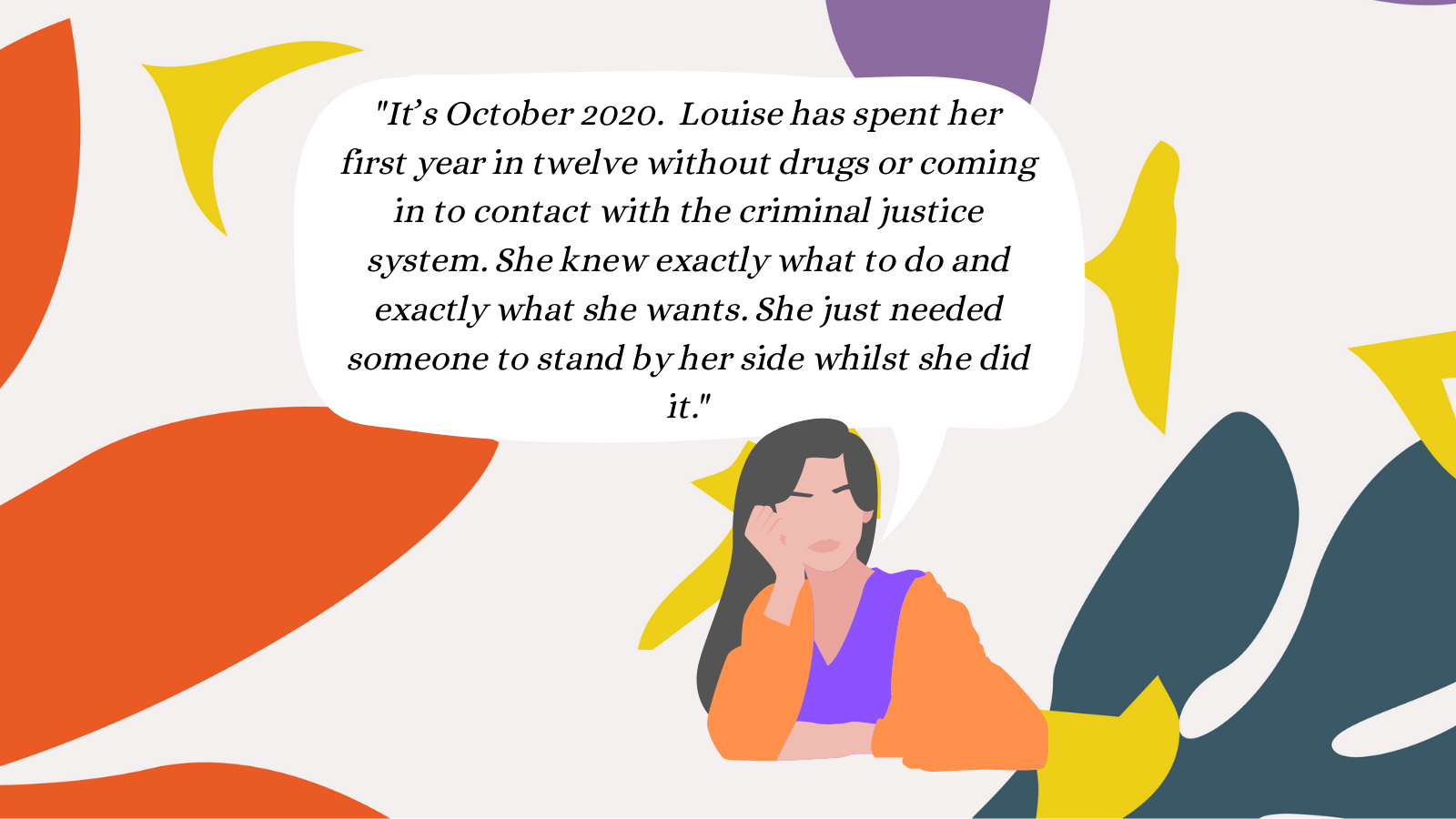
2020 Reflections: Jade's Blog

It’s August 2019. I met Louise* at the prison gates on the day of her release. I had visited her wing a couple of times before but she couldn’t quite remember. People often visit cells with broken promises of support, so she knew not to get her hopes up.
She’s familiar with the day ahead of her having been in-and-out of prison for the past 12 years. Three months here, four weeks there - never enough time to access support, but just enough time to lose the room she called home.
Together we travel from appointment to appointment chatting along the way – meeting with probation, her local drug and alcohol service, then to the council for housing support. She shares her stories of pain. Tragic losses, the partner who knocked her teeth out, she shows me the gaps in her mouth. The streets she’s slept on, the car parks where she washed. Stories of inequality and oppression, and a system not serving her. I notice her openness, her resilience, her bravery, her wisdom. I notice her laughter as she asks me to hold a mirror up so she can do her make-up on the train.
Over the past year we’ve sat together at doctors’, dentist and hospital appointments, reminding healthcare professionals to “speak to her, not me.” We’ve walked alongside each other to housing services and council buildings. We’ve sat in parks with big coffees writing plans for those days when her trauma gets the better of her and she can’t think how to function – for days when opening the curtains is good enough. We’ve laughed in garden cafes and hunched behind library computers. We’ve filled out applications for training programmes, she wants to be a peer mentor and use her experiences to help others.
COVID-19 has made things difficult. Her support groups are now virtual, yoga sessions and exercise classes moved to Zoom, and with Job Centres closing, the only way to manage benefits is online. But like so many, Louise doesn’t have access to the internet and the libraries have been shut. At the height of lockdown I was unable to visit her, so instead we were on the phone most days talking about what might help her get through it. We thought up home exercise routines and wrote them down, we both tried them out and shared them with other women who also don’t have access to the internet. I posted her puzzles, arts and crafts, word searches. When she had to self-isolate but didn’t have anyone to bring her food, I was able to get her a food bank voucher and was grateful they were able to deliver.
It’s October 2020. Louise has spent her first year in twelve without drugs or coming in to contact with the criminal justice system. She knew exactly what to do and exactly what she wants. She just needed someone to stand by her side whilst she did it.
Women’s Centres and services give women the space they need to remember their worth, remember their strengths, and rebuild their lives independently from the punishment systems which have denied them agency. Women’s Centres offer access to specialist advocacy, advice and support on housing, substance misuse, mental and physical health, debt, domestic abuse, family and parenting issues, to women facing multiple disadvantages - all under one roof. I fear that for many women whose lives are affected by prison and the criminal justice system, without these specialist community services to anchor them from the tide of poverty, isolation, stigma and abuse, the systematic lack of support our society offers women could well mean they end up in prison.
* Name changed for confidentiality and anonymity purposes.
All information in this article has been shared with the consent of the women included.
Click here to learn more about our services
Click here for more information about our #NewDeal4WomensCentres campaign